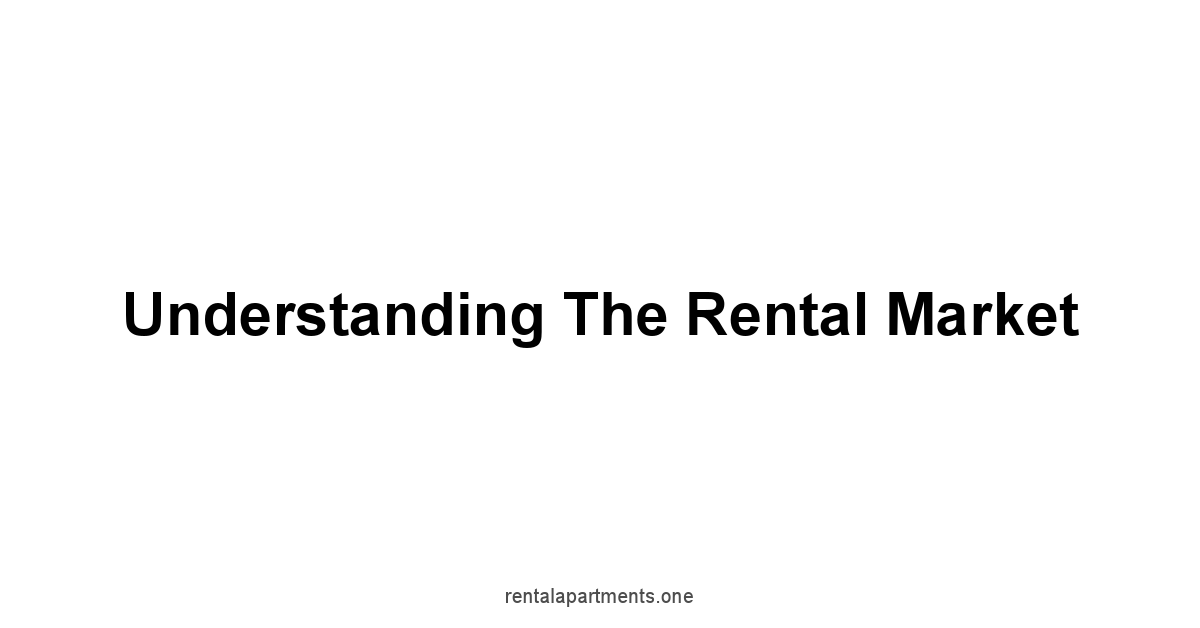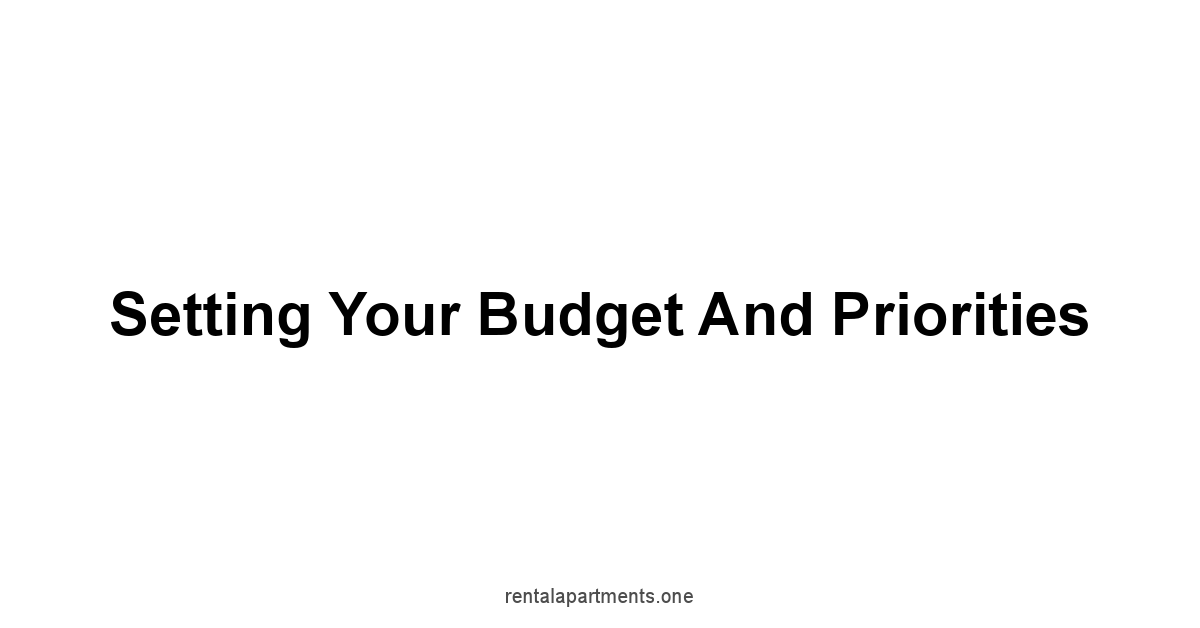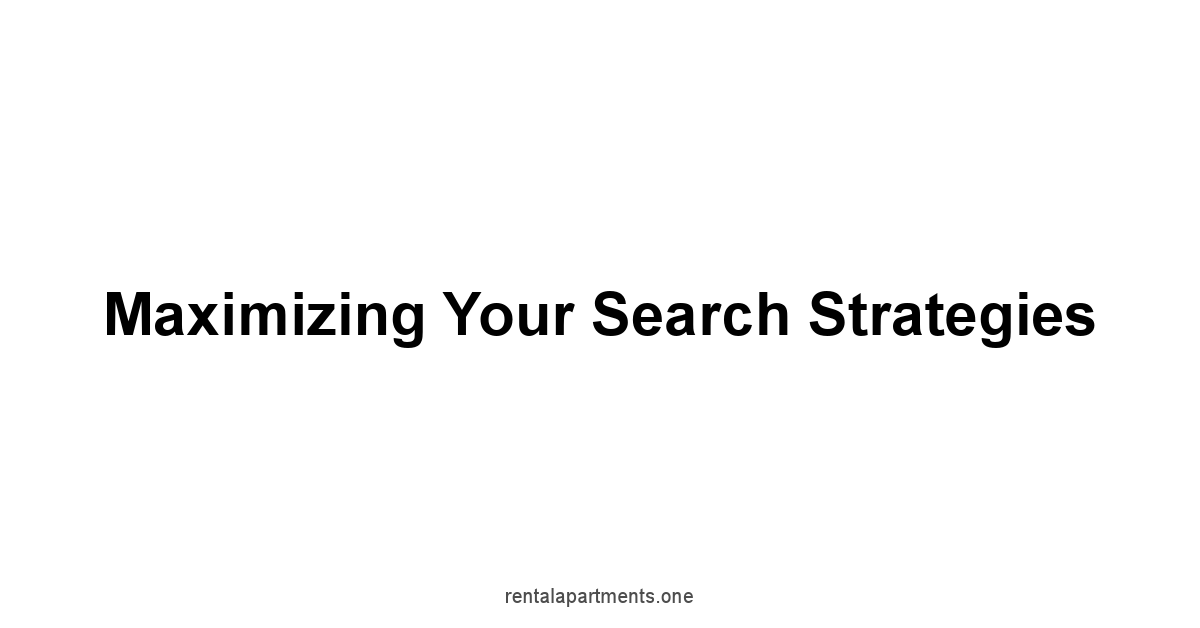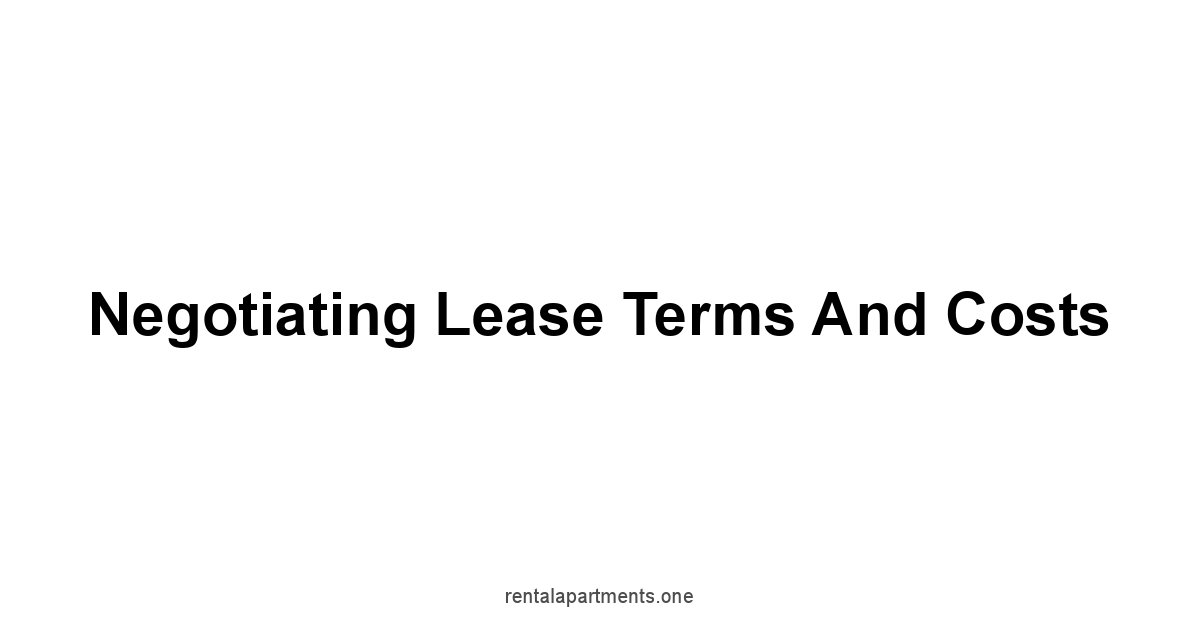Hunting for affordable apartment rentals, especially in today’s market, can feel like a daunting quest, but it is not an impossible one.
Like a seasoned fisherman knows the sea, you have to know the rental market to find a deal.
The rental market, it is not a static thing, its always moving, like the tide, with its highs and lows.
Summer is usually the peak time, with rents up 10-15%, while winter is the slowest, where you might get a 5-10% discount, knowing this, you can time your search to your advantage, like a hunter waits for the perfect moment.
Every location is unique, with its own demographics, transportation, amenities, and rent prices, a good strategy is key to finding a place that fits your budget and needs.
The secret lies in understanding these details and knowing how to make them work to your advantage.
For example, neighborhoods closer to downtown generally have higher rent, than places that are further away, like a table that shows prices:
| Neighborhood | Avg. Studio Rent | Avg. 1-Bed Rent | Avg. 2-Bed Rent | Proximity to Downtown |
|---|---|---|---|---|
| Downtown | $1,800 | $2,200 | $3,000 | Very Close |
| Midtown | $1,500 | $1,900 | $2,600 | Close |
| Suburb A | $1,200 | $1,600 | $2,200 | Moderate |
| Suburb B | $1,000 | $1,400 | $1,900 | Far |
To start, you need a solid understanding of your budget and priorities.
A good rule of thumb is to follow the 30% rule, which states that your rent shouldn’t be more than 30% of your gross monthly income, also you need to be honest about all your other expenses and plan accordingly. It is best to be safe than sorry.
It is crucial to set your needs vs wants, a safe neighborhood, adequate space, and essential appliances are needs, while amenities like a gym, pool, are wants, you need to focus on your needs first.
The key is knowing what you absolutely need, and focusing on those needs.
To find the place, you must make use of all your resources: online platforms, local networks, and even driving around.
Sites like Zillow and Apartments.com, are a great tool to use, they offer tons of listings, tools to filter by price, location, size, and many other things, use all their tools and they might show you some great deals that you would otherwise miss.
Local resources, like community bulletin boards, social media groups, and word-of-mouth can often lead to hidden gems that are not advertised online, like finding a secret passage.
You need to go and explore different streets in the area, look for “For Rent” signs, talk to the locals, and visit local businesses.
Once you find a place that you like, it’s time to negotiate the lease terms.
This is a key part of finding an affordable apartment.
You need to read the lease carefully, know your responsibilities, and be prepared to negotiate on the rent and the move in costs.
Don’t be afraid to negotiate a lower price, or ask for incentives, landlords are more willing to negotiate if you offer a longer lease, or a quicker move in date. You need to use all your tools.
It is also crucial to scrutinize all the additional fees like application, pet, or parking fees.
These hidden charges can greatly increase your costs, so you need to be aware of them. If something feels off, then it probably is.
This is a game of diligence, so keep your eyes peeled.
By following these guidelines, and being smart about it, you will increase your odds of landing the right place for the right price.
Understanding the Rental Market

The hunt for an affordable apartment can feel like navigating a dense fog.
You need to know where you’re going, and the terrain you’re walking on.
It’s a game, sure, but one where the rules are set by the market, not by you.
The rental market, like the sea, has its tides and currents, its ebbs and flows.
Knowing these rhythms can make the difference between landing a great deal and getting swept out with the undertow.
You need to understand it to make it work for you, to not get played by it.
It’s not enough to simply look at what’s available, you need to understand why it’s available.
What drives the prices? What influences the supply? What makes one neighborhood more expensive than another? These are the questions you need to ask yourself if you want to come out on top.
To get the good deal, you need to study and know the market well, as well as a good fisherman knows the sea.
This section will serve as your compass, helping you understand the lay of the land and set you on the right path.
Knowing Your Local Market
You can’t win a fight without knowing your enemy, and in this case, your ‘enemy’ is the local rental market.
It’s not about them vs you, but knowing them, the market, to get the apartment you want.
Every city, every town, every neighborhood has its own pulse.
What’s expensive in one area might be a steal in another.
The rent rates, the availability, the demand, it all changes depending on location.
It’s not a flat map, it’s all hills and valleys, you need to study it all.
- Neighborhood Demographics: Look at who lives there. Are they young professionals, families, students? This will affect the types of rentals available and their cost.
- Transportation: Is it close to public transit? How long will it take you to get to work or school? The further you are from the hub, the lower the price will usually be.
- Amenities: What’s available near by? Parks, groceries, restaurants, gyms? It all impacts price.
- School Districts: Even if you don’t have kids, good school districts generally raise the price of rent, be mindful of this.
- Crime Rates: This is a key factor. You need to be safe in your own home. Check local crime maps to assess the safety of a neighborhood.
- Average Rent Prices: This is key. See what apartments of the size you need typically rent for in the area. Use websites like Zillow, Redfin, or Rentometer for the general price.
Here’s a table showing an example of rental price variations in a city:
This table shows how rent varies between different locations.
Understanding this will put you in a better spot to find a place that fits your budget.
You’ve got to walk the streets, even if its virtually, to really understand the beat of the neighborhood.
Check out local social media, forums, and groups for insights about the place.
It might save you from a place that looks good on paper, but is bad in reality.
The more you know, the better the decisions you will be able to make.
Rental Seasonality and Timing
The rental market, like the seasons, has its highs and lows, and the timing can be everything.
Landlords will take advantage of times where demand is high.
Knowing when these times are will save you some money. You can use this to your advantage.
The rental season is not a secret, and knowing it is like knowing the tide, you can use it.
- Summer Peak: Summer is usually the peak season. Most people move during this time due to the weather being good, school breaks being in effect, and college students searching. Prices tend to be higher and there’s more competition for apartments.
- Winter Lull: Winter is the slow season. Demand decreases as no one likes to move during winter. You might find better deals and be able to negotiate more in this season.
- Fall and Spring: These are usually transitional periods. You could find good deals before or after the summer rush, but it’s going to be a toss up.
- End of the Month: Some landlords are more keen to fill their vacant units quickly towards the end of the month, so be on the lookout for those deals.
Consider this data which shows how demand changes during the year:
* June-August: High demand, rents up 10-15%
* September-November: Moderate demand, average rents
* December-February: Low demand, potential 5-10% discount
* March-May: Moderate to high demand, slight increase in rents
- Lease Renewal Timing: Landlords will start sending out lease renewal letters a couple of months before the lease end. This is the period when you can negotiate your new rent, or if you are looking to move out, prepare your exit.
- Move-in Date Flexibility: If you’re flexible with your move-in date, you might find landlords who are more willing to negotiate for a vacant unit. Try to see what will work for them, rather than only focusing on your needs.
Knowing these patterns, you can plan your search to your advantage.
You might find yourself getting a cheaper apartment by waiting a bit. This is a game of patience and timing.
Online Listing Scams to Avoid
The internet is a powerful tool for finding apartments, but it’s also a haven for scammers.
These scams can waste your time and money, and you need to know them to avoid them.
You need to keep your eyes open, not every deal is as good as it looks on paper. Some deals are just plain wrong.
- Too-Good-to-Be-True Prices: If a deal looks unbelievable, it probably is. If an apartment is way below the market price, that’s a red flag.
- Requests for Money Upfront: Never send money before you’ve seen the place in person and signed a lease.
- Out-of-Town Landlords: Be wary of landlords who claim to be out of the country and can’t show you the apartment. They will usually ask you to send a deposit to ‘hold’ the place.
- Pressure to Act Quickly: Scammers want to pressure you so you won’t have the chance to think things over. Never let them rush you into a decision you aren’t sure about.
- Generic Listings: Listings that are vague or have too many pictures of the neighborhood and not the apartment itself should be avoided.
- Reverse Image Search: Use Google Images or TinEye to check if the photos have been used on other websites. Scammers steal photos, so this can help spot them.
Here’s a checklist to avoid being scammed:
- Verify the landlord: Use the address of the building to find the actual landlord of the property.
- Visit the property in person: Never rent a place sight unseen.
- Never wire money or use cash apps: Use secure payment methods like checks or money orders if you need to send money, and ensure you have proper documentation of the payment, and avoid sending money via untraceable methods like cash apps, or direct wire transfers.
- Trust your gut: If something feels off, it probably is.
- Read reviews: Check online reviews of the building, landlord or property management company.
Online searching can make the apartment search easy, but you need to keep your head straight and avoid the traps.
Not all that shines is gold, sometimes it is just a reflection of a trap.
So you need to be vigilant and look before you leap.
Setting Your Budget and Priorities

Finding a great apartment isn’t just about location and price, it’s about knowing what you can afford and what you truly need.
You can’t just look at the cheapest place and call it a day.
You need to take a hard look at your finances and be honest with yourself on what you can manage.
It’s a game of balance: finding a place that fits your budget while also meeting your needs. If you go too low in quality, you’ll be miserable. If you go too high on price, you will be broke. Finding the perfect balance is the key.
You need to know how much you can spend, what you really need, and what are things that are just a bonus.
This stage is crucial, you can’t just look for the cheapest place, you need to look for the right place. It’s about setting priorities and sticking to them.
This section will guide you in understanding your finances, defining your essentials, and making sure your apartment search is grounded in reality.
This is what separates a good deal, from a bad one.
Calculating Your Rent Affordability
Before you fall in love with an apartment, you need to see if it loves you back, that is, if you can afford it.
Renting is not just about paying rent, its about all other expenses that go with it.
This is a crucial step that cannot be skipped if you want to live peacefully.
Calculating rent affordability is simple math, but you need to do it right.
- The 30% Rule: A common guideline is that your rent shouldn’t exceed 30% of your gross monthly income before taxes. This is a good rule of thumb, but you also need to think about your other expenses and lifestyle.
- Calculate Your Monthly Income: Add up your monthly income from all sources salary, side gigs, etc.. Make sure to use your gross income before taxes and deductions.
- List All Other Monthly Expenses: This includes things like loan payments, car insurance, utilities, groceries, transportation, entertainment, and any other regular payments. Be honest with yourself, and don’t forget the small things. It all adds up.
- Add Up all Expenses: Once you have all your expenses listed, sum them up and see what remains. This will be the maximum you can spend on rent.
- Calculate the Max Affordable Rent: Subtract your total expenses from your monthly income. If your rent is over 30% of the gross income, you need to reconsider.
- Factor in Additional Costs: Don’t forget to include the cost of utilities, renter’s insurance, internet, and any potential moving expenses. These are usually overlooked and it’s a mistake to not calculate them.
- Emergency Fund: It’s wise to have an emergency fund. Aim for 3-6 months of living expenses saved up in case of job loss or unexpected costs.
Here’s an example:
- Monthly Gross Income: $5,000
- 30% of Gross Income: $1,500 Ideal Max Rent
- Total Monthly Expenses: $2,000 Car Payment, food, etc
- Maximum Affordable Rent: $5,000 – $2,000 = $3,000
This means your ideal rent should be $1,500, but you have a cap at $3,000, without including utilities.
So you need to find the sweet spot between those numbers.
- Rent Calculator Tools: There are many online rent affordability calculators that can help you assess how much rent you can comfortably afford. These are a great tool to use so that you can have multiple opinions and tools at your disposal.
You need to be honest with yourself, no point in living in a fancy place you can’t afford.
Budget realistically and avoid the stress of being in a place you cannot afford.
It’s better to rent a modest apartment you can afford rather than renting a luxury one that will empty your bank account.
Identifying Essential Amenities and Needs
Not all apartments are equal.
Some come with all the extras, some come with the essentials, and some come with next to nothing.
Knowing what you need will help you filter out the options and narrow down the list to the important ones.
Before looking at the aesthetics you must consider the amenities and features you absolutely cannot live without.
- Location: This is usually the first one on the list. Are you close to work, public transport, and other essentials you need? This might dictate the price, but it’s better to prioritize convenience sometimes.
- Size: How much space do you actually need? It’s a good idea to see your stuff and see how much space you actually need. Don’t go for a giant apartment if you just need a modest one.
- Number of Bedrooms/Bathrooms: How many bedrooms do you need? How many bathrooms? This greatly changes based on if you have roommates or family.
- In-Unit Laundry: For some people this is vital, while for others it’s a luxury. If you hate going to a shared laundromat, prioritize it.
- Kitchen Appliances: Do you need a dishwasher? A microwave? If you enjoy cooking, make sure the kitchen is up to par with your needs.
- Parking: If you have a car, parking is vital. Street parking might not cut it for some people.
- Pet Policy: If you have a pet, the apartment has to be pet-friendly. Some may limit the size or type, so make sure it’s right for you and your pet.
- Safety and Security: Look for secure entry, good lighting, and a safe neighborhood. These are often overlooked, but they matter.
- Accessibility: If you have any mobility issues, things like stairs will be a problem. Ensure to consider this for the long term.
Here’s a quick checklist:
- Location proximity to work, public transport, etc
- Size number of bedrooms, bathrooms, total square footage
- In-unit amenities laundry, appliances, etc
- Building amenities parking, gym, storage, etc
5. Pet policy
6. Safety features
7. Accessibility features
- Consider Your Lifestyle: If you work from home, you might need a dedicated office space. If you’re outdoorsy, you might want close proximity to parks and trails.
Prioritizing your needs will narrow your search and prevent you from being distracted with features you don’t care for.
You have to think about all the things you actually need and cannot live without, and work from there.
Make sure to focus on what actually matters to your daily life.
Distinguishing Needs versus Wants
It is essential to differentiate between needs and wants when searching for a place.
Needs are non-negotiable, they are the must-haves, the essentials.
Wants are the bonuses, the extras, the nice-to-haves that are not necessarily deal-breakers.
Sometimes its hard to tell them apart, and you need to be honest with yourself.
- Needs
- Basic Safety and Security: A safe neighborhood, a secure building, and basic safety measures are not optional.
- Functional Space: Adequate space to live comfortably, including a suitable kitchen, bathroom, and sleeping area.
- Essential Appliances: A working stove, refrigerator, and if essential, a laundry unit or access to one.
- Acceptable Commute: Reasonable proximity to work, school, or other important places you need to reach daily.
- Affordable Rent: A monthly payment that fits within your budget without causing financial strain.
- Wants
- Luxury Amenities: A gym, swimming pool, or concierge service, while nice, are not necessary for comfortable living.
- High-End Finishes: Stainless steel appliances, granite countertops, and hardwood floors are attractive, but usually come with a price tag.
- Extra Space: An additional bedroom, a big balcony, or a home office that you might not need is a want.
- A Specific View: While a nice view is something that many people want, it is not a necessity, and does usually come with a price.
Here is a table to help you differentiate Needs vs Wants:
| Feature | Need | Want |
|---|---|---|
| Location | Close to work/school, safe neighborhood | Scenic view, trendy neighborhood |
| Space | Adequate living space, functional kitchen | Extra bedroom, balcony, large living room |
| Amenities | Working appliances, laundry access | Pool, gym, updated appliances |
| Cost | Rent within budget, affordable utilities | Top-tier appliances, marble countertops |
| Security | Secure entry, safe environment | Concierge service, smart home security system |
- Be Realistic: Be honest with yourself about your finances and lifestyle. Don’t get distracted by the bells and whistles you don’t actually need.
- Prioritize: Identify your top 3-5 needs and focus on them. Don’t compromise on your needs just to get a fancy extra.
- Adjust Expectations: Sometimes, you might need to compromise on your wants to find a place that meets your essential needs within your budget.
Knowing the difference between what you need and what you want will help you find the best balance between budget and comfort.
It will make your search less stressful and more effective.
You need to avoid being swayed by unnecessary extras, and keep your mind on the prize: a great place within your budget.

Maximizing Your Search Strategies

Finding the right apartment is not about waiting for it to come to you, it is about going out there and searching with a plan.
Like a hunter, you need the right strategy to find your prey.
Don’t just rely on one website, explore all your options, be active. You have to be smart about it. This is not the time for being lazy.
The more strategies you use, the better your chances of finding the perfect apartment.
You need to leverage the internet, local connections, and even your own two feet, if necessary.
The more techniques you have, the more chances you’ll have to find the right place.
This section will give you the right tools and methods for your hunt.
Utilizing Online Rental Platforms Like Zillow and Apartments.com
Platforms like Zillow, Apartments.com, and others are a treasure trove of options.
But simply visiting those websites and hoping to find something is not going to work. You need to use them properly. The right way, as they were designed to be used.
- Zillow: Zillow is good for its detailed information, its price history, and neighborhood analysis tools. You can use it to set alerts so you are aware of any new listing on the market.
- Detailed Filters: Use the filters to narrow down your search by location, price, number of bedrooms, and more. This is vital to narrow your search to things you actually care about.
- Saved Searches: Save your searches and set up email alerts to be notified of new listings that match your criteria. This ensures you don’t miss anything.
- 3D Tours: Many Zillow listings include virtual tours. These are amazing tools as they can help you save time and money from looking at places you might not like.
- Zestimate: Use Zillow’s estimated property value to get a rough idea of what an apartment should cost. It’s a good benchmark when deciding.
- Apartments.com: This platform specializes in apartment rentals with lots of property details and photos.
- Large Database: Apartments.com has a vast database of apartments, including those managed by larger property management companies.
- Detailed Listings: Each listing includes detailed information on apartment features, amenities, and lease terms. Use it to your advantage.
- Neighborhood Overviews: They offer neighborhood guides with school info, commute times, and local attractions. This is an often overlooked tool, but it is vital to your search.
- Virtual Tours: Similar to Zillow, many apartments will have virtual tours, allowing you to see a place without actually visiting.
Here’s how to make the most of these online platforms:
1. Set Filters: Narrow your search by location, price, size, and amenities.
2. Save Searches: Save your filters and get email updates for new listings.
3. Review Photos Carefully: Examine all pictures to ensure you see the apartment from different angles.
4. Check Reviews: See what past tenants say about the property and management.
5. Contact Landlords Quickly: If you find a good deal, reach out immediately. Good places get snatched fast.
- Other Online Platforms: There are many other platforms like Trulia, Realtor.com, HotPads, and Craigslist. Don’t be afraid to explore them all, you never know where a deal might be.
- Use Multiple Platforms: Don’t rely on just one platform. Using multiple platforms can get you different listings that you otherwise would have missed.
The internet is a powerful tool, use it wisely and you can greatly reduce the time and cost you will spend searching for the perfect place.
It is a shortcut, but you need to use the shortcut properly, and be persistent.
Leveraging Local Resources and Networks
While the internet is useful, it’s always good to have other resources and connections to fall back on.
It’s like having multiple maps when you’re on a treasure hunt.
You don’t want to be reliant on just one, you need variety.
Local resources can often provide you with listings and options that you might not find online.
Word of mouth still has power, and you need to use it to your advantage.
- Community Bulletin Boards: Check local bulletin boards in coffee shops, libraries, grocery stores, and community centers. Sometimes landlords post listings there that they haven’t posted online.
- Local Newspapers and Magazines: Check the classifieds in local newspapers and magazines. There are many owners who prefer to advertise this way.
- Social Media Groups: Join local Facebook groups, Nextdoor, or other community pages. These platforms are often used by people seeking roommates or those looking to rent out their properties.
- Neighborhood Groups: Look for groups specific to the areas where you’re interested in living. This will help you connect with other people who actually live in that specific area.
- Networking: Engage in conversations, make your needs known, and ask for leads. People might know of places that are not yet on the market.
- University Housing Offices: If you’re near a university, check their housing offices or student bulletin boards for apartment listings, sometimes at a discounted price.
- Real Estate Agents: While they may focus on sales, some local agents also handle rentals. Check out their offers in your local area.
- Local Community Centers: Visit the local community centers and see if they have information about rentals. They might know of programs that are available.
- Personal Connections: Ask friends, family, coworkers, or neighbors if they know of any apartments for rent. Sometimes a lead from a personal connection is the best lead of them all.
Here is a list of local resources you should try:
1. Local Bulletin Boards at coffee shops and community centers
2. Local Newspapers and Magazines
3. Community Social Media groups
4. University Housing Offices
5. Real Estate Agents that deal with rentals
6. Local Community Centers
7. Personal Connections and word-of-mouth
- Network with Locals: Don’t hesitate to talk to people who live in the area where you want to live. People who actually live in the area are often the best source of information.
Local resources might seem old fashioned, but they can often lead to hidden deals you won’t find on the internet.
Sometimes the old ways are the best, and you should explore all your options and use them to your advantage.
Be proactive, and don’t wait for things to come to you, go out there and get them.
Driving Around Target Neighborhoods
Sometimes the best way to find a hidden gem is to leave the computer and go on the ground.
This strategy can be very useful, because some landlords don’t put listings online.
Driving or walking around the neighborhoods you are interested in can be a very good method.
You need to be your own real estate agent here, and rely on yourself.
- Look for “For Rent” Signs: Many landlords post signs directly on the property. Driving or walking around is a great way to find these signs.
- Record the Phone Number: If you see a “For Rent” sign, immediately contact the landlord. You might be the first one to call and get a deal.
- Take Pictures: Take pictures of the building and the surrounding area, you might forget them later, this can be your visual reminder.
- Explore Different Streets: Check out various blocks and streets within your target neighborhoods. Different streets in the same neighborhood can have different feels and prices.
- Check Smaller Apartment Buildings: Some smaller buildings and duplexes might not be listed online, so the only way to find them is by physical exploration.
- Notice the Details: Pay attention to building conditions, the overall neighborhood, and other things that matter to you, you won’t see them if you just rely on online listings.
- Assess the Area: What’s the overall feel of the neighborhood? Does it match what you are looking for in a place to live? Use your eyes, and assess the situation for yourself.
- Visit at Different Times: Drive through the area at different times of day to get a sense of the noise levels and activity. During the day it might look great, but during the night it might be noisy and problematic.
- Talk to Residents: If you see people walking around, don’t be afraid to ask them about their experiences living there. This will give you a first-person insight you won’t get elsewhere.
- Look for Vacant Units: Drive by, and sometimes you might be able to spot a vacant unit that has a for rent sign, you might be the first one to contact the owner.
- Visit Local Businesses: Check out the local cafes and shops, and see what the area is like. You might even be able to get information about rentals from them.
Here’s a checklist when driving around:
1. Drive or walk in the neighborhoods you like
2. Look for "For Rent" signs and record the contact info
3. Explore different streets and buildings
4. Check the condition of the property and surrounding area
5. Talk to the locals and assess the area
- Combine with Online Search: Use the information you gain while driving around to further inform your online searches. They can and should complement each other.
Driving around might seem like an old-fashioned technique, but it will help you find those hidden gems that don’t get advertised elsewhere.
Sometimes the best way to find something is to go out there and get your hands dirty, or your feet tired, in this case.
Negotiating Lease Terms and Costs

Finding a place you like is just half the battle.
Once you find a place you like, you need to make sure the lease terms and costs are in your favor.
Don’t just accept the terms you are given, you need to negotiate.
Most people simply accept whatever is given to them, but that is a mistake, you need to be proactive.
You need to know the rules of the game to make it work in your favor.
It’s not about being cheap, it’s about being smart.
Negotiating is a standard part of renting and you shouldn’t feel bad about it.
It’s your hard earned money, and you need to make it work to your favor.
You should see this as a game, a chance for you to put yourself in a good position.
This section will guide you through the steps of negotiating and ensuring you get the best deal possible.
Understanding Lease Agreements
Before you sign on the dotted line, you need to read and understand your lease agreement.
Many people skip this step, and sign without properly reading. This is a huge mistake, and it can cost you later.
The lease agreement is a contract, and you need to know what you’re agreeing to, if you don’t understand it, ask for clarification. Don’t be shy, or be afraid to ask questions.
- Read it Carefully: Read every single word. Don’t skim, and don’t sign until you fully understand it.
- Lease Term: Understand the duration of your lease e.g., 6 months, 12 months. You need to plan ahead and see if this is what works for you.
- Rent Amount: Double check the monthly rent, and see if it matches what was agreed upon.
- Payment Due Dates: Be aware of when rent is due and any late fees. Avoid late fees at all costs, they can add up.
- Security Deposit: Note the amount of the security deposit, how it will be held, and the conditions for its return.
- Pet Policy: If you have a pet, ensure that the pet policy is clear. Some places have limits on breed, size, and other stuff.
- Maintenance and Repairs: Be clear on who is responsible for repairs and maintenance. If you are responsible, you need to know how to reach them.
- Subletting Policy: Understand if you are allowed to sublet your apartment, and under what conditions. You might need it in the future if you need to leave early.
- Early Termination: Find out what happens if you need to break the lease early, and what the penalty is.
- Renewal Options: Understand how the lease renewal process works.
- Utilities: Check if utilities are included, or if you are responsible for them.
- Additional Fees: Be on the lookout for extra fees for parking, storage, or others.
- Guest Policies: Some leases limit overnight guests. Be mindful of these policies.
- Rules and Regulations: Be aware of community rules regarding noise, trash disposal, and shared spaces.
Here’s a checklist of what to check in a lease:
1. Lease Term
2. Rent Amount
3. Payment Due Dates
4. Security Deposit
5. Pet Policy
6. Maintenance Responsibilities
7. Subletting Policy
8. Early Termination Clauses
9. Renewal Options
10. Utilities Responsibility
11. Additional Fees
12. Guest Policies
13. Rules and Regulations
- Ask Questions: Don’t hesitate to ask the landlord or property manager for clarification on any clause you don’t understand. If it does not make sense, ask, before signing it.
- Seek Legal Advice: If the lease is complex or confusing, consider consulting with a legal professional before you sign. This is a step you might take for really long leases.
Knowing your lease agreement inside and out is key to avoiding potential problems later.
You need to see it as a map, that guides you through the process, and by reading it carefully, you will be prepared for what’s coming.
You cannot just sign blindly, be smart, and understand the whole thing.
Negotiating Rent and Move-In Costs
Rent is not a fixed price, you can and should negotiate it.
You have the chance to bring the price down, or make the deal even better.
The key is to be polite, yet firm, and know how to negotiate.
It’s not a bad thing to negotiate, this is part of the process, and you should take advantage of this.
- Research Market Prices: Use online tools to find out the average rent for comparable apartments in the area. Use this as ammunition for your negotiation, if the place is over priced, you need to say so.
- Timing is Key: When it’s slow season, landlords are more likely to negotiate. Go after deals in winter, or the fall, when the demand is low.
- Be Polite but Firm: Be respectful, but also be confident. Be clear about what you are asking for.
- Offer a Lower Price: Don’t be afraid to offer a lower rent than the asking price. Start reasonably and work your way up.
- Longer Lease Term: Offer to sign a longer lease term for a lower monthly rent. Landlords prefer stable tenants, and might lower the price if you agree to a longer lease.
- Negotiate on Move-In Date: If you have flexibility, offer to move in sooner rather than later. Landlords may agree to reduce rent to fill a vacancy faster.
- Highlight Your Strengths: If you have a good credit score, a stable income, and a good rental history, point that out. It shows them you are a good tenant.
- Negotiate on Move-In Costs: Sometimes you can negotiate move-in costs, such as the security deposit or first month’s rent.
- Be Prepared to Walk Away: If the landlord won’t negotiate on a price that is too high for you, you need to be prepared to walk away, don’t feel pressured.
- Ask for Incentives: You might also get a free month of rent, or a discount in the first couple of months. Try to explore your options.
Here are some things you can try when negotiating:
1. Do market research on what others in the area pay
2. Negotiate based on the season or when demand is low
3. Offer a lower price, and be firm
4. Offer to sign a longer lease
5. Negotiate the move in date
6. Highlight your strengths
7. Be willing to walk away
8. Ask for incentives
- Document Everything: Make sure that any agreement you reach is written into your lease before you sign it. Don’t accept verbal promises. Get everything in writing.
Don’t be afraid to negotiate.
It is a part of the process, and you can often get a better deal if you try to do it.
Treat it like a game, and play to win, but keep in mind to be respectful and polite.
If you do it right, you can potentially save a lot of money.
Scrutinizing Additional Fees and Charges
Rent is just one part of the cost when renting.
You need to be aware of all the other fees and charges, that might otherwise surprise you.
Landlords often add additional fees, make sure to go through them with a fine tooth comb.
You should know exactly how much you are going to pay, and not be surprised by additional charges later.
- Application Fees: Some landlords charge application fees, which are typically non-refundable. Ask about the fee before applying.
- Credit Check Fees: Landlords usually charge a fee for running a credit check, you need to know how much it is, and if it is refundable or not.
- Security Deposit: This is common, and must be refundable if you don’t damage the apartment. Read your lease, and see how they will determine any damages.
- Pet Fees: If you have a pet, you might have to pay a pet fee. Make sure to see what their policy is, and if it is a one time payment, or a recurring monthly fee.
- Move-in Fees: Some landlords charge move-in fees for the administration of the lease. This is usually a flat fee.
- Parking Fees: If parking is not free, make sure to understand all the parking charges you will have.
- Storage Fees: If you use additional storage space, you will have to pay a fee. See how much it is, and if you actually need it.
- Late Fees: Know what happens if you pay your rent late. Some landlords charge exorbitant fees.
- Early Termination Fees: Landlords often have fees for terminating a lease early. Be aware of this if you might need to terminate a lease early.
- Utilities Fees: Check if utilities are included in the rent, or if you need to pay for them separately.
- Maintenance Fees: If a place needs maintenance, you need to understand what fees you might be responsible for paying.
- Amenity Fees: If the building has amenities like a gym or pool, sometimes they charge a monthly or annual fee.
Here is a checklist to avoid hidden fees:
- Ask about the application fee, and how much it is
- Check the credit check fee, and who charges it
- Check the security deposit, and if it’s refundable
4.
Conclusion
In the end, finding an affordable apartment is about combining knowledge, strategy, and a bit of grit.
It’s a challenge, like any good hunt, but one that can be won with patience and a plan.
You’ve learned about navigating the rental market, understanding the cycles, and avoiding the traps set by scammers.
You’ve taken a hard look at your finances, figured out what you need, and what you can live without.
Now, you’ve got the tools to go out there and make it happen, it’s time to act.
You’re armed with the knowledge of how to use online platforms, explore local resources, and even drive through neighborhoods to uncover hidden gems, the ones that don’t make it to the internet.
You know how to read a lease, negotiate rent, and make sure you’re not caught off guard by hidden fees. It’s about being proactive, not passive. It’s about not settling for less than you deserve.
The data is on your side, with savvy renters often finding savings of 5-10% by negotiating lease terms or timing their move during off-peak seasons.
Remember, the rental market is a game, but it’s one you can win if you understand the rules and play smart.
It is about setting priorities, knowing the value of a location, and the cost of an amenity, and always having your eye on the budget.
It’s not about the first place you see, it’s about the one that fits you the best, and your situation. You need to search, and negotiate.
Don’t be afraid to ask for what you want, if you never ask, you will never receive.
Now, it’s your turn to put this knowledge into action.
Go out there, search, negotiate, and find the place that feels like home, without breaking the bank.
The perfect apartment is out there, you just have to do the work, be persistent, and never settle for less.
It’s a tough hunt, but you’re prepared, so go get it.
Frequently Asked Questions
What’s the best way to understand the rental market?
You need to know your terrain.
Look at who lives there, how they get around, and what’s nearby. Check crime rates, and average rent prices. It’s like studying the land before you build.
How does timing affect my rental search?
Timing matters. Summer is hot for rentals, prices are high. Winter is slow, you might find a deal. Fall and spring are in between, a toss up.
Time it right, like a good fisherman knowing the tide.
What are some red flags for online rental scams?
If it sounds too good, it probably is. Don’t send money before seeing the place in person.
Watch out for out-of-town landlords and pressure to act fast.
Trust your gut, if something feels wrong, it is probably wrong.
How do I figure out what I can afford for rent?
Use the 30% rule, but be honest about all your expenses. Add it all up. Don’t forget the small stuff, it all adds up. Have an emergency fund, a safety net. Rent what you can afford, not what you want.
What’s more important, location or size?
That’s up to you.
Location matters if you need to be close to work or public transport. Size matters if you need more space.
Prioritize what you can’t live without, and go from there.
How do I tell the difference between a need and a want?
Needs are essential: safety, functional space, affordable rent. Wants are bonuses: gym, fancy finishes.
Focus on what you need, not just what you want, or you will get lost.
How can I use online platforms effectively?
Use the filters, save your searches, set alerts. Check reviews, and view virtual tours.
But also, don’t rely on them alone, be ready to check things with your own eyes.
Are there other resources besides online listings?
Look at community bulletin boards, local papers, and social media.
Network, and ask your friends, you never know what you will find. People might know of places not on the internet.
Should I drive around to find rentals?
Yes. Look for “For Rent” signs. Explore the streets, and check different areas. Talk to residents, if you can.
It’s like tracking a deer, you have to explore where they live.
How should I approach the lease agreement?
Read it all, every word. Make sure you understand it. Ask questions if you’re unsure.
It’s a contract, you need to know what you’re agreeing to. Get legal help if needed.
Is rent negotiable?
Yes.
Research prices, time it right, offer a lower price, be polite but firm. Highlight your strengths as a tenant. It’s like trading, everything is negotiable.
What are some common extra fees I should look out for?
Watch for application fees, credit check fees, pet fees, parking fees, and late fees.
Read the small print and make sure you know what you are agreeing to.
It’s like spotting a snake, you have to be careful.




